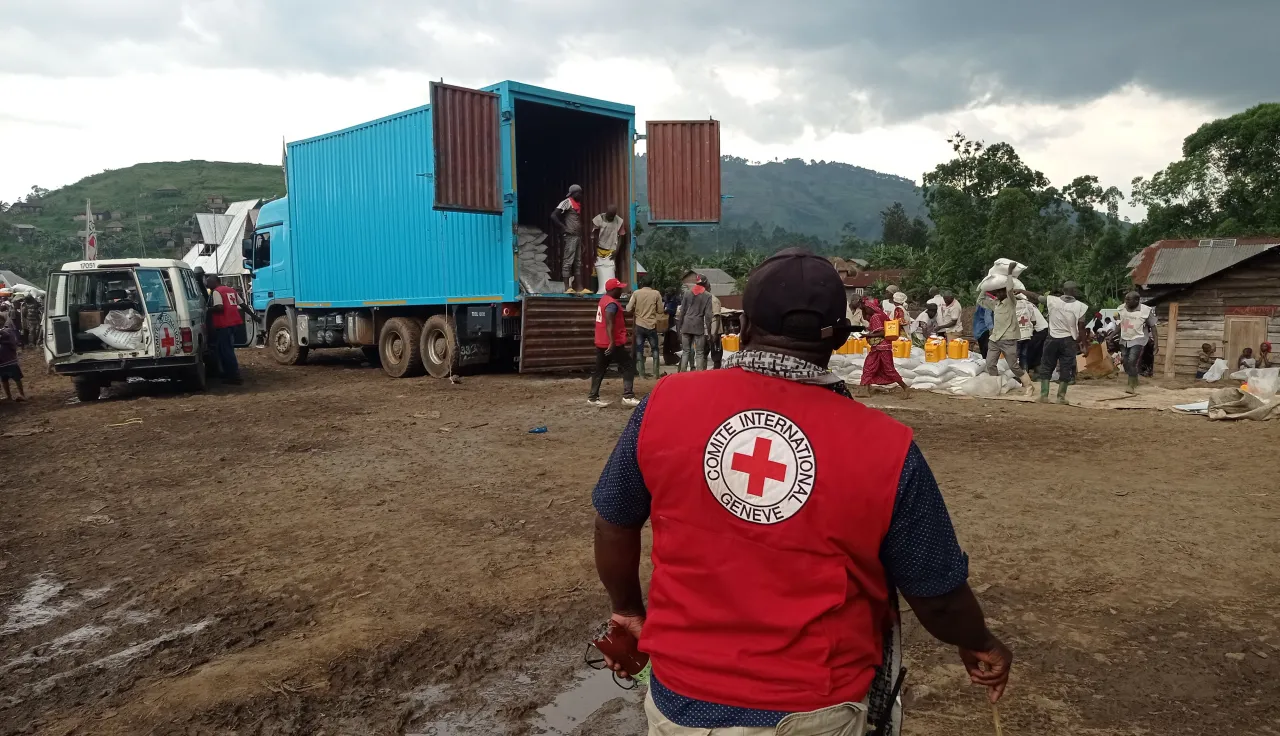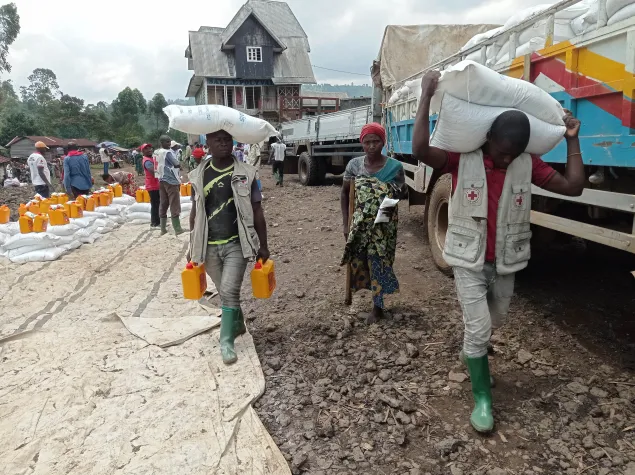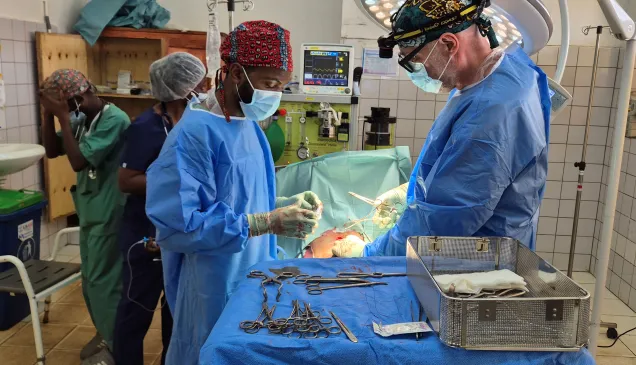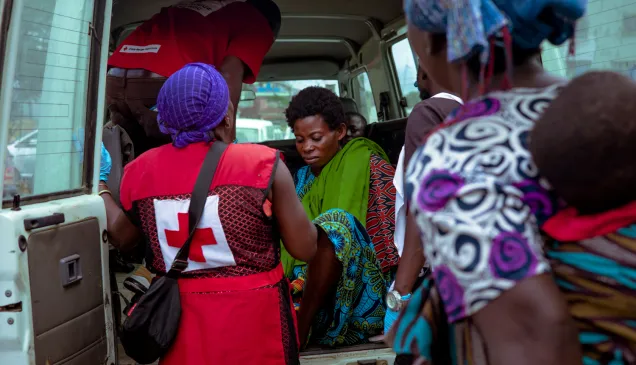Amid a worsening crisis, conflict-affected communities in North Kivu are facing growing economic distress

The ongoing armed conflict in North Kivu Province in the east of the Democratic Republic of the Congo (DRC) is affecting communities' ability to meet their basic needs. As fighting restricts access to fields, and several illegal roadblocks hinder the movement of people and goods, the predominantly rural population is facing soaring prices due to lower agricultural production. With each passing day, people are seeing their living conditions deteriorate further.
Despite the relative calm on the outskirts of Goma, fighting continues among various armed groups in several of North Kivu's territories. These clashes are increasing population displacements and further reducing access to fields and livelihoods.
North Kivu Province now has 2.5 million people fleeing conflict, the highest number in the DRC according to the United Nations Office for the Coordination of Humanitarian Affairs. For displaced families who have found land to farm, and host communities who are still able to work their land, the presence of numerous armed men between their homes and the fields has significantly increased cases of physical (including sexual) aggression and illegal taxation.
Difficulty accessing fields has led to price rises for agricultural goods, some of which are now imported from large cities in the east and neighbouring countries. Communities are finding it increasingly difficult to meet their food needs, and malnutrition cases are rising. Between July and December 2024, it is estimated that around 2.4 million people will be in a Crisis situation (Integrated Food Security Phase Classification Phase 3), in which lack of access to food will have reached critical levels.[1]
Myriam Favier, head of the International Committee of the Red Cross (ICRC) subdelegation in North Kivu, explains: “Families facing severe food insecurity are found where prolonged conflict, such as that in the east of the DRC, makes food production and delivery extremely difficult. Ultimately, the collapse of these food production systems weakens communities who are already vulnerable. Respect for international humanitarian law, which is essential for civilians' protection during the planning and conduct of hostilities, limits the impact of fighting on people's food security by ensuring, for example, that they have access to fields and markets and that humanitarian organizations' can reach communities in need.”
With civilian populations exposed to a situation combining armed violence and alarming food insecurity, teams from the ICRC, together with the DRC Red Cross, provided food assistance to more than 112,600 people in conflict-affected areas between 7 and 29 October 2024.

A civilian in North Kivu receives assistance from the Red Cross to boost her economic security.
The ICRC continues to urge the parties to the conflict in North Kivu to apply the rules of international humanitarian law during conduct of hostilities, and to honour their obligations to protect civilians and their property.
ICRC actions to strengthen economic security for the people of North Kivu, October 2024
- From 7 to 29 October 2024, 60,800 displaced and returned people received food (25 kg of beans; 50 kg of maize flour; 10 l of oil and 1 kg of cooking salt) in Nyanzale, Katsiru and Kibirizi in Rutshuru territory.
- From 19 to 26 October 2024, 28,700 displaced and returned people received food in Bweremana, Bishange and Kashenda in Masisi territory.
- From 8 to 20 October 2024, more than 23,000 displaced and returned people received food in Kanyabayonga in Lubero territory. This assistance completes the food aid distribution previously suspended in June 2023 due to hostilities advancing through the south of Lubero territory.



